Disclosure Related
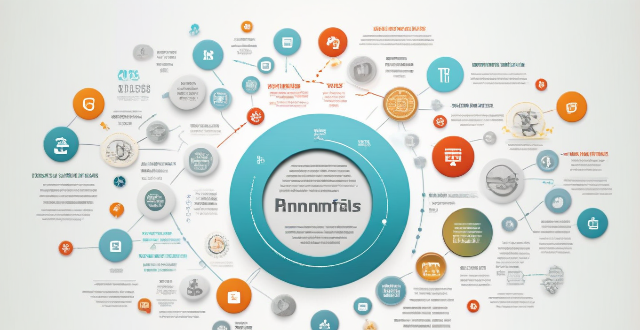
Why is climate-related financial disclosure important for investors ?
Climate-related financial disclosure is crucial for investors as it helps manage risks, identify investment opportunities, promote transparency and accountability, and ensure regulatory compliance. By disclosing their climate-related risks and opportunities, companies can take proactive steps to mitigate them and reduce their impact on the business. Additionally, climate-related financial disclosure helps identify potential investment opportunities, such as renewable energy projects and sustainable agriculture practices. Transparency and accountability are also promoted through climate-related financial disclosure, which can enhance a company's reputation and relationships with stakeholders. Finally, regulatory requirements are becoming increasingly important, and companies that fail to disclose their climate-related risks and opportunities may face fines or penalties.

How does TCFD help in managing climate-related risks ?
The Task Force on Climate-related Financial Disclosures (TCFD) is a global initiative aimed at helping companies manage climate-related risks through consistent disclosure. The TCFD framework guides businesses in identifying and assessing these risks, integrating them into business planning, ensuring transparency through reporting and disclosure, conducting scenario analysis and stress testing, and recognizing potential opportunities arising from the transition to a low-carbon economy. By following this structured approach, companies can protect themselves from negative impacts of climate change and position themselves advantageously in emerging markets related to climate solutions.
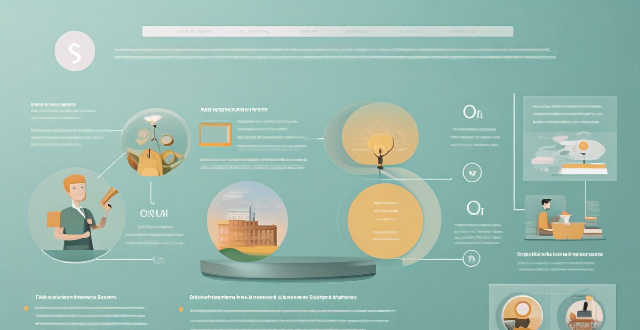
How do TCFD disclosures improve transparency and accountability in business practices ?
The Task Force on Climate-related Financial Disclosures (TCFD) was established by the Financial Stability Board (FSB) to develop a framework for companies to disclose information about their impact on, and from, climate-related risks. These disclosures play a crucial role in enhancing transparency and accountability in business practices. By adhering to TCFD recommendations, businesses are compelled to communicate openly about their strategies and plans related to climate change. This includes identifying and explaining the potential impact of climate change on their operations and disclosing any financial risks or opportunities that may arise due to climate change. Investors increasingly demand clarity on how companies are addressing climate change. TCFD disclosures provide this clarity, fostering trust among investors and other stakeholders. The TCFD framework sets clear benchmarks for disclosure, making it easier for stakeholders to assess a company’s performance against industry standards. This promotes comparative analysis and performance evaluation. As the TCFD gains momentum, companies are incentivized to comply not just for regulatory reasons, but also to maintain their reputation and competitive edge in the market. Knowing they must report on climate-related matters can push companies to innovate, seeking new ways to reduce environmental impacts and adapt to climate risks. With TCFD disclosures, companies are prompted to consider long-term implications of their actions, leading to more sustainable business models. The disclosures align businesses with the United Nations Sustainable Development Goals (SDGs), particularly those related to climate action and life on land. TCFD provides a global standard for reporting, ensuring that companies operating across multiple jurisdictions can be assessed consistently. Through TCFD disclosures, companies can share successful strategies and practices related to climate risk management, fostering a collaborative approach to addressing climate change. Disclosures can reveal areas where companies might need partners—whether in technology, research, or other sectors—to achieve their climate goals.

How do variety show hosts deal with unexpected disclosures during live broadcasts ?
Handling unexpected disclosures during live broadcasts can be challenging for variety show hosts. Here are some tips on how to manage these situations effectively: 1. Stay calm and professional. 2. Acknowledge the disclosure. 3. Redirect the conversation. 4. Use humor (if appropriate). 5. Take a short break (if necessary). 6. Address the disclosure later (if applicable). 7. Seek support from your team. By following these strategies, you can maintain control of the show and keep your audience engaged and entertained.

What is the TCFD (Task Force on Climate-related Financial Disclosures) ?
The Task Force on Climate-related Financial Disclosures (TCFD) is an initiative by the Financial Stability Board aimed at standardizing how companies report climate-related financial impacts. It covers four main areas: governance, strategy, risks and opportunities, and metrics and targets. By adhering to TCFD guidelines, companies can enhance transparency, improve risk management, align with sustainable development goals, and boost their reputation among stakeholders.
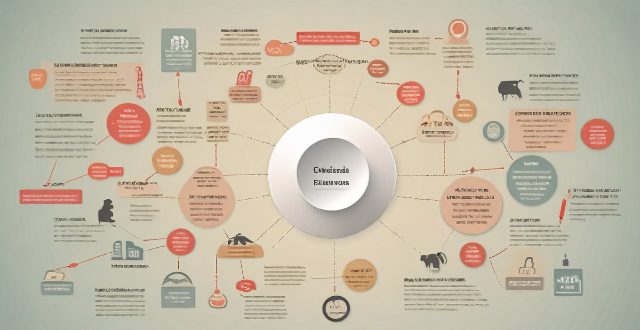
What role do auditors play in ensuring the accuracy of TCFD disclosures ?
Auditors play a crucial role in ensuring the accuracy of Task Force on Climate-related Financial Disclosures (TCFD) disclosures. Their key responsibilities include verifying information, assessing processes, and reporting findings to management and interested parties. By conducting audit procedures such as reviewing internal controls and testing their effectiveness, auditors can help ensure that companies provide reliable and transparent information about their climate-related risks and opportunities. This is essential for investors, regulators, and other stakeholders to make informed decisions.
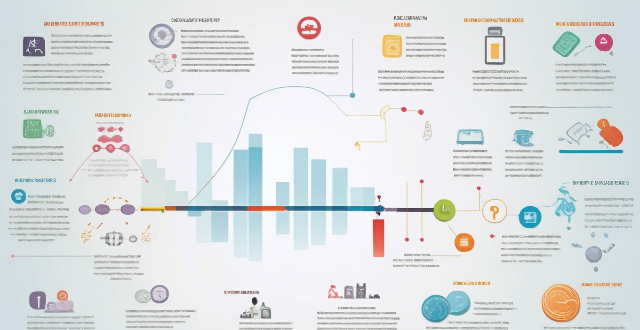
How does TCFD affect corporate reporting ?
The Task Force on Climate-related Financial Disclosures (TCFD) has significantly impacted corporate reporting by requiring enhanced disclosure of climate-related risks and opportunities. Companies must identify, assess, and manage these risks, including through scenario analysis and governance processes. They also need to disclose how climate change affects their business model and strategy, as well as the alignment of their portfolio with a low-carbon transition. Operational performance metrics such as emissions data and energy use must be reported, along with information on positive impacts and innovation related to climate action. Overall, the TCFD guidelines aim to promote transparency and encourage companies to integrate sustainability into their financial decision-making processes.

Can regular physical activity prevent age-related diseases ?
The text discusses the potential of regular physical activity to prevent age-related diseases, highlighting its numerous benefits such as improved cardiovascular health, enhanced immune function, better bone density, reduced inflammation, and improved mental health. It further elaborates on how these benefits can specifically prevent or delay the onset of diseases like cardiovascular diseases, diabetes, osteoporosis, cancer, and dementia. The conclusion emphasizes that while regular physical activity can play a significant role in preventing age-related diseases, it should be part of a comprehensive approach to health that also includes a balanced diet, adequate sleep, and stress management.

What role does preparation play in managing exam-related stress ?
Exam-related stress is a common experience for many students, and it can have a significant impact on their performance. However, preparation is one of the most effective ways to manage this stress. In this article, we will explore the role that preparation plays in managing exam-related stress. Preparation is crucial when it comes to managing exam-related stress. It reduces anxiety, increases efficiency, improves performance, and builds resilience. To prepare for exams, start early, create a study plan, review notes and textbooks, practice with past papers, seek help if needed, take care of yourself, stay positive, visualize success, avoid procrastination, and use relaxation techniques. By following these strategies, you can prepare yourself effectively for exams and manage any related stress. Remember, preparation is key to success!

What impact do sports-related charitable activities have on local communities ?
Sports-related charitable activities have a significant impact on local communities by promoting physical fitness, enhancing civic pride, providing educational opportunities, fostering diversity and inclusion, and addressing social issues. These activities bring people together, teach valuable life skills, and promote healthy lifestyles among children and young adults. By getting involved in sports-related charitable activities, we can make a positive difference in our local communities and create a brighter future for all.

How can companies implement TCFD guidelines in their financial statements ?
The Task Force on Climate-related Financial Disclosures (TCFD) was established to develop global climate-related financial disclosures for companies. Implementing TCFD guidelines in financial statements involves understanding the framework, assessing climate-related risks and opportunities, integrating this information into financial reporting, and engaging stakeholders. Companies should disclose governance, identify risks and opportunities, provide strategies and metrics, and present financial impacts of climate change. They should also assess physical and transition risks, integrate climate-related metrics into financial statements, revise risk disclosures, and provide scenario analysis. Engaging stakeholders and providing clarity on assumptions and methodologies used in scenario analysis is crucial. By following these steps, companies can provide investors and stakeholders with a clear picture of their exposure to climate-related risks and opportunities.

How do climate-related CSR efforts affect a company's reputation and consumer perception ?
The text discusses the impact of climate-related corporate social responsibility (CSR) efforts on company reputation and consumer perception. It emphasizes that CSR has become essential for modern businesses, especially in terms of environmental responsibility. The importance of reputation and perception is highlighted, with brand image, investor confidence, stakeholder engagement, consumer loyalty, market differentiation, and risk mitigation being key factors. The article then explores the positive effects of climate-related CSR efforts on reputation and perception. These include public recognition, industry leadership, alignment with values, a trustworthy brand image, social responsibility, and innovative approaches. However, potential challenges such as greenwashing accusations, unmet expectations, negative scrutiny, skepticism, cost pass-through concerns, and inconsistency issues can also arise. In conclusion, the article stresses the significance of climate-related CSR efforts in shaping a company's reputation and consumer perception. To maximize benefits and minimize risks, companies must ensure their climate-related CSR strategies are genuine, transparent, and consistent with their overall business operations.

How do family courts handle cases related to domestic violence and child custody ?
Family courts play a crucial role in handling cases related to domestic violence and child custody, prioritizing safety, investigating allegations, considering the best interests of the child, making custody decisions, and providing ongoing support and monitoring.

How do major sporting events, like the Olympics or World Cup, influence sports-related film productions ?
The Influence of Major Sporting Events on Sports-Related Film Productions Major sporting events like the Olympics or World Cup have a significant impact on sports-related film productions. They generate increased interest in sports, provide inspiration for storytelling, offer access to athletes and coaches, and present marketing opportunities. As a result, filmmakers may be more likely to produce sports-related films during or after these events, creating works that capture the drama and excitement of sports while resonating with audiences worldwide.

What are the benefits of adopting TCFD for a company's stakeholders ?
Adopting TCFD can bring numerous benefits to a company's stakeholders, including investors, lenders, employees, customers, suppliers, and the general public. By providing more transparent and comprehensive information about a company's exposure to climate-related risks, TCFD can help stakeholders make more informed decisions, reduce uncertainty, and build trust between companies and their stakeholders. Some key benefits for investors include enhanced risk management, improved valuation accuracy, and increased alignment with ESG criteria. Lenders benefit from reduced lending risk, improved credit analysis, and increased transparency. Employees gain enhanced job security, improved workplace safety, and increased employee engagement. Customers, suppliers, and the general public benefit from improved product quality and safety, enhanced supply chain resilience, and increased corporate social responsibility.
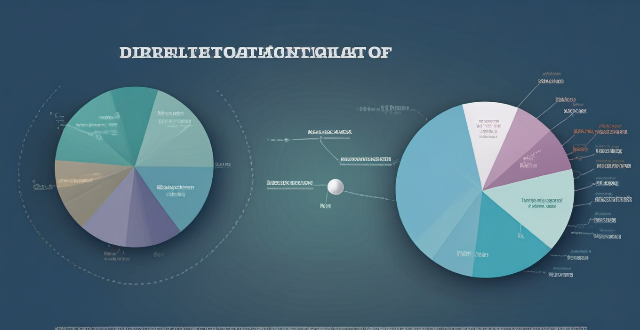
How can companies implement TCFD disclosures effectively ?
Effective implementation of TCFD disclosures in companies involves establishing a governance framework, assessing climate-related risks and opportunities, developing scenario analysis, reporting and disclosing information, and ongoing management and updates. This process helps companies meet the requirements of the TCFD and prepare for a low-carbon future.
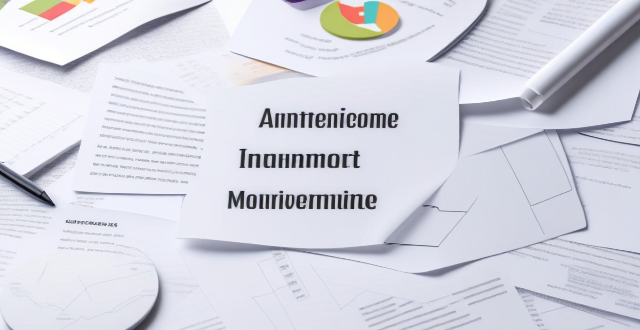
What are the potential costs and benefits of TCFD for small and medium-sized enterprises (SMEs) ?
The TCFD framework, designed for consistent climate-related financial disclosures, offers SMEs benefits like enhanced reputation and improved risk management but also presents costs including resource allocation and implementation complexity. SMEs should carefully consider the potential long-term strategic advantages against immediate expenses to make informed decisions about adopting TCFD.

Are pre-existing medical conditions covered by travel insurance ?
Travel insurance coverage for pre-existing medical conditions varies by policy and provider. Factors influencing coverage include the type of policy, deductibles and limits, waiting periods, and disclosure of information. Some policies offer limited or comprehensive coverage for these conditions, while others exclude them altogether. It is crucial to research different policies and consult with an insurance professional to find the best coverage for your individual needs.

How is climate change affecting the insurance industry ?
Climate change is significantly impacting the insurance industry by increasing natural disasters, altering liability exposures, and prompting regulatory changes. Insurers must adapt to these challenges by updating risk assessment models, complying with new regulations, shifting investment portfolios towards sustainability, and innovating products. This adaptation is crucial for insurers' financial resilience and their role in aiding societal adaptation to climate change.
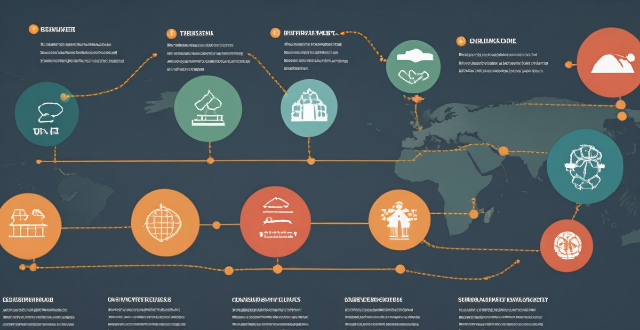
How does TCFD align with other global reporting initiatives like the Global Reporting Initiative (GRI) ?
The Task Force on Climate-related Financial Disclosures (TCFD) and the Global Reporting Initiative (GRI) are two global sustainability reporting frameworks that share several key points of alignment. Both provide guidelines for companies to report on their sustainability performance, with TCFD focusing specifically on climate-related financial disclosures and GRI covering a broader range of sustainability issues. They also emphasize the importance of materiality assessment, stakeholder engagement, risk management, and climate change disclosures in determining which aspects are most relevant to an organization's business model and strategy. By following both frameworks, companies can provide a more comprehensive picture of their sustainability performance and demonstrate their commitment to addressing climate change and other sustainability issues.
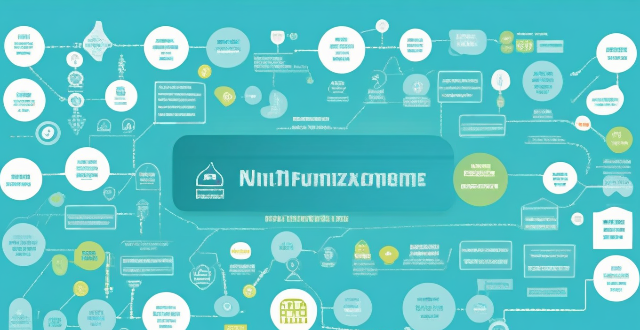
What are the most common ESG reporting frameworks used by companies ?
The Global Reporting Initiative (GRI) is a widely used sustainability reporting framework that provides a standardized approach for companies to report on their economic, environmental, and social performance. The GRI consists of several standards, including those related to disclosure principles, management approach, economic performance, environmental performance, social performance, governance, non-financial information disclosure, reporting principles, boundaries, guidelines, content, quality, frequency, language, format, timeframe, period, entities, scope, limitations, assurance, certification, training, tools, collaboration, innovation, stakeholder engagement, data quality, impact assessment, risk management, performance indicators, materiality analysis, and stakeholder engagement process. These standards help organizations prepare high-quality GRI reports that are accurate, reliable, and consistent across different organizations and sectors.

What is the regulatory environment for private equity ?
Private equity firms are subject to various regulatory requirements, including disclosure, anti-money laundering and know your customer regulations, securities laws, and tax laws. The specific regulations vary across different regions and countries, with the United States being regulated by the Securities and Exchange Commission (SEC) and the Financial Industry Regulatory Authority (FINRA), Europe by the Alternative Investment Fund Managers Directive (AIFMD), and Asia having widely varying regulations across different countries. Despite these regional variations, key principles such as transparency, disclosure, and compliance with securities and tax laws are common across all jurisdictions.

What measures do variety shows take to prevent sensitive information from being leaked ?
Variety shows take measures to prevent sensitive information leaks, such as non-disclosure agreements and confidentiality clauses in contracts. They also control access to sensitive information, implement security measures, and provide training and education for participants and crew members. These strategies help ensure the privacy and security of participants while providing entertaining content for viewers.

What are the ethical considerations in tax planning ?
Tax planning is crucial for financial management but must be done ethically to maintain fairness and integrity. Key considerations include avoiding aggressive tax avoidance, ensuring transparency and honesty in reporting, paying a fair share of taxes, avoiding double standards, considering long-term sustainability, and recognizing the responsibility towards society by supporting public services through taxes.

What are the potential risks of climate change for the insurance sector ?
Climate change poses significant threats to the insurance sector, including increased natural disasters, changes in liability exposures, property value fluctuations, and regulatory/legal changes. Insurers must adapt by assessing risks, updating policies, and collaborating with governments to create effective strategies.

What is the relationship between heat waves and mortality rates ?
The text discusses the relationship between heat waves and mortality rates, highlighting various factors that contribute to this complex relationship. It emphasizes the increased risk of heat-related illnesses like dehydration, heat exhaustion, and heat stroke during heat waves, which can lead to serious complications and death if not treated properly. The article also notes the impact of heat waves on chronic health conditions like cardiovascular disease, respiratory problems, and diabetes. Age-related vulnerabilities are discussed, with older adults being particularly susceptible due to physiological changes and a higher prevalence of chronic health conditions. Socioeconomic factors are identified as crucial determinants of an individual's vulnerability to the adverse effects of heat waves, including housing quality, healthcare access, education level, and employment status. The text concludes by stressing the importance of public health strategies aimed at reducing the impact of heat waves on vulnerable populations.

Can TCFD help reduce the impact of climate change on businesses ?
The Task Force on Climate-related Financial Disclosures (TCFD) aims to provide a framework for companies to disclose information about their exposure to climate-related risks and opportunities, as well as their strategies for managing these risks and seizing opportunities. TCFD can help reduce the impact of climate change on businesses by promoting risk management, increasing investor confidence, driving innovation and investment in sustainable solutions, preparing for regulatory compliance, and facilitating stakeholder engagement. While TCFD alone cannot directly reduce the impact of climate change on businesses, it serves as a crucial tool in helping companies understand and manage their exposure to climate-related risks.

What are the key recommendations of the TCFD framework ?
The Task Force on Climate-related Financial Disclosures (TCFD) was established by the Financial Stability Board (FSB) in December 2015. The TCFD's objective is to provide clarity, consistency, and comparability in the information reported by companies about their climate-related risks and opportunities. The framework aims to help investors, lenders, insurers, and other stakeholders understand how companies are managing these risks and opportunities. Here are the key recommendations of the TCFD framework: Companies should describe their governance arrangements for managing climate-related risks and opportunities. This includes clear assignment of responsibility for oversight of these issues, linkage to company strategy and risk management processes, and integration with other ESG (Environmental, Social, and Governance) reporting. Companies should identify and report on both the potential impacts of climate change on their business (risks) and the opportunities that may arise from transitioning to a lower carbon economy. This includes direct physical and transition risks, indirect risks through the supply chain or customer behavior, and opportunities related to new markets, products, or services. Companies should describe their approach to managing climate-related risks and opportunities. This includes short-term and long-term strategy considerations, alignment with corporate goals and risk appetite, and use of scenario analysis and stress testing. Companies should disclose quantitative metrics and targets related to climate risks and opportunities. This includes emissions data, including Scope 1, 2, and 3 emissions, energy usage and efficiency improvements, and carbon intensity reduction targets. Companies should disclose relevant financial implications of climate-related risks and opportunities. This includes impact on financial statements, capital allocation decisions influenced by climate factors, and insurance coverage for climate-related risks. Companies are encouraged to use scenario analysis to illustrate the potential financial impacts of different climate pathways. This helps stakeholders understand how companies are prepared for various future climate scenarios. While not mandatory, the TCFD recommends obtaining external assurance on the information disclosed, where material. This enhances the reliability and credibility of the disclosures. Companies should also disclose non-financial exposures related to climate change, such as reputational risks or legal and regulatory challenges. Companies are encouraged to report on their strategies for mitigating climate risks and adapting to changing climate conditions. This includes investments in renewable energy, energy efficiency measures, and resilience planning. The TCFD encourages companies to use consistent metrics and methodologies to enable comparability across different organizations and industries. This aids in benchmarking and tracking progress toward climate goals.

What is the significance of climate-related disclosures for investors ?
This article discusses the significance of climate-related disclosures for investors, highlighting how they help in risk management, opportunity identification, and alignment with sustainable investing goals. It outlines key elements of such disclosures including emissions data, climate risk assessments, climate change strategies, and governance and oversight. The article also suggests best practices for investors to integrate these disclosures into their investment analysis and collaborate with companies to improve them.

What are some examples of successful TCFD implementation by companies ?
The Task Force on Climate-related Financial Disclosures (TCFD) was established by the Financial Stability Board (FSB) in 2015 to develop a framework for voluntary climate-related financial risk disclosures. Since then, many companies have successfully implemented the TCFD recommendations, providing stakeholders with valuable information about their exposure to climate-related risks and opportunities. Here are some examples of successful TCFD implementation by companies: **Unilever** has conducted a comprehensive assessment of its climate-related risks, including transition and physical risks. The company has identified potential impacts on its supply chain, operations, and products due to climate change. Unilever publishes detailed reports on its website, outlining its greenhouse gas emissions, water withdrawal, and waste generation. The company also discloses its progress toward sustainability targets, such as reducing carbon emissions and increasing renewable energy usage. Unilever actively engages with stakeholders, including investors, customers, and employees, to understand their concerns and expectations regarding climate-related issues. This helps the company to identify and prioritize areas for improvement in its sustainability efforts. **Iberdrola** has integrated climate risk management into its overall risk management framework. The company assesses both short-term and long-term climate-related risks and opportunities, considering factors such as changes in regulations, market trends, and technological advancements. Iberdrola provides detailed information about its greenhouse gas emissions, energy consumption, and renewable energy production. The company also discloses its strategies for adapting to climate change, such as investing in renewable energy projects and developing new technologies to reduce emissions. Iberdrola engages with stakeholders through various channels, including annual sustainability reports, social media, and public forums. The company seeks feedback from stakeholders to improve its sustainability performance and ensure that it aligns with societal expectations. **Microsoft** has conducted a thorough assessment of its climate-related risks, focusing on both direct and indirect impacts. The company has identified potential threats to its infrastructure, supply chain, and customer demand due to climate change. Microsoft publishes detailed reports on its greenhouse gas emissions, energy consumption, and water usage. The company also discloses its progress toward sustainability targets, such as reducing carbon emissions and increasing renewable energy usage. Microsoft engages with stakeholders through various channels, including annual sustainability reports, social media, and public forums. The company seeks feedback from stakeholders to improve its sustainability performance and ensure that it aligns with societal expectations.